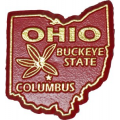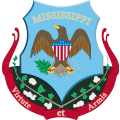Rhode Island is home to several accredited nursing schools, including four campuses of the Community College of Rhode Island system. These schools offer a broad range of nursing programs, from brief certificate courses to bachelor’s, master’s, and even doctoral degrees. We profile below the three key nursing roles in Rhode Island: certified nursing assistant (CNA), licensed practical nurse (LPN), and registered nurse (RN).
Certified nursing assistant
Latest articles
Individuals pursuing a nursing career can find several quality schools in Reading, Pennsylvania. Reading Area Community College, Reading Hospital School of Health Sciences, and Alvernia College are three local institutions that provide well-regarded training. Upon completing a degree or certificate program, graduates can work at local healthcare employers like Reading Hospital, Haven Behavioral Hospital, and the Women’s Center.
Healthcare is a rapidly growing employment sector. Ohio alone employs more than 240,000 individuals in the nursing industry. Roughly half of these are registered nurses (RNs), who make independent patient care decisions under the guidance of a physician. Ohio’s RNs typically earn between $50,000 and $70,000 annually. RNs frequently manage teams of more junior nurses, including licensed practical nurses (LPNs) and certified nursing assistants (CNAs). There are approximately 40,000 LPNs and 70,000 CNAs in Ohio, earning a median annual salary of $40,000 and $24,000, respectively.
Private schools are not administered by the local, state, or federal government, and they receive no direct government funding. Private colleges generally have smaller class sizes than their public counterparts, enabling closer interaction with classmates and professors. Many private schools do charge high tuition, but students with strong academic records or significant needs can access financial assistance programs, including grants and merit scholarships. In addition, private schools are often prestigious, providing students an advantage in the job market after graduation.
Public colleges are funded in large part by government funds. One perk of attending public college is lower tuition and fees, particularly for state or county residents, which translates into lower student debt for graduates. Public schools often have a higher admittance rate, making them more accessible. In addition, public colleges are generally larger in size, leading to a diverse student body and a large number of student clubs and social events.
The master of science in nursing (MSN) program is an advanced qualification for nurses to further their careers in specialized fields such as nursing administration, nursing education, and family practice nursing. An MSN-educated nurse can enter high-paying advanced practice roles. For example, Mississippi’s nurse practitioners earn a median annual salary of over $90,000, while its nurse anesthetists receive almost $150,000 in average annual pay. We highlight some of the state’s best MSN programs below.
Mississippi University for Women
Mississippi’s healthcare providers are in short supply for registered nurses (RNs). The state’s aspiring RNs have two options for prelicensure education: a two-year associate’s degree in nursing (ADN) and a four-year bachelor of science in nursing (BSN). Both programs prepare students to pass the NCLEX-RN national licensure examination. However, the ADN program is a faster pathway to nursing employment, and it keeps open the possibility of further education (e.g., an RN-to-BSN completion program) at a later date.
Education pathways
Public nursing schools are operated by state colleges and universities. They provide a viable option for aspiring nurses with tight educational budgets. These government-funded nursing schools charge lower tuition than private schools; they also offer a state-approved syllabus and standardized methods of instruction. Students can attain licensure for all four levels of nursing at Maryland’s public schools: certified nursing assistant (CNA), licensed practical nurse (LPN), registered nurse (RN), and advanced practice registered nurse (APRN).
Are you interested in beginning or furthering a career in Maryland’s nursing industry? Regardless of your age or experience, Maryland has a breadth of nursing programs that can help you either gain initial licensure or enhance your existing career.
Looking for a fulfilling career in nursing? Below we’ve profiled several of the accredited nursing schools in Tampa, Florida.
Ultimate Medical Academy










